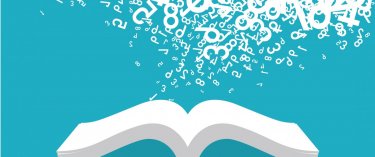
Learning Disabilities
What should I know about learning disabilities?
Learning disabilities currently affect around eight percent of school-aged children in France, who may experience difficulties with reading, writing, spelling, math, oral expression and/or concentration.
There are different types of learning ‘dys’-abilities:
- Language difficulties, often detected in nursery school, ranging from delayed language acquisition to dysphasia
- Reading difficulties (dyslexia)
- Difficulties with spelling (dysorthography) and writing (dysgraphia)
- Math difficulties (dyscalculia)
- Difficulties with fine motor skills and coordination (dyspraxia)
These learning disabilities vary widely from one child to the next. Some are complex and combine with other issues, interfering with the child’s everyday activities at home and at school.
Some children may also show signs of other developmental disabilities in the following areas:
- Communication and social interaction (autism)
- Delayed intellectual development
- Attention deficit disorder, with or without hyperactivity
- Executive functioning (working memory, inhibition control, cognitive flexibility)
How are learning disabilities diagnosed at the American Hospital of Paris?
To form a diagnosis or give a second opinion, a doctor evaluates the child during a consultation.
The doctor starts with the feedback from the family or teaching staff, then uses scientifically proven screening tests to evaluate the child.
The first step is to assess the child’s acquired knowledge and skills in order to rule out other disorders that might be affecting their ability to learn. Based on the child’s age, the doctor evaluates his or her skills in reading, spelling, math, verbal language (oral expression, vocabulary and syntax production and comprehension), and non-verbal language (reasoning and handwriting).
The doctor then conducts a series of modular, computerized tests designed for children aged 4 to 13 known in France as BMT-i.
What happens during the consultation?
The consultation lasts around 90 minutes.
It enables the doctor to:
- Discuss the child’s medical antecedents with the parents, hear feedback about school and everyday life at home, and note any care the child has received prior to the consultation
- Observe the child and conduct a medical evaluation with him or her
- Provide a summary report to the parents at the end of the consultation
All previous evaluations (speech therapy, psychomotor, ergotherapy, neuropsychological assessment, hospitalization reports) should be provided ahead of the consultation if possible, or the day of.
At the end of the consultation, the doctor will be able to:
- Clarify the difficulties observed in the child
- Refer the parents to health care providers (doctors, speech therapists, psychologists) for additional assessments.
- Offer to liaise with the child’s current health care providers
- Define recommendations for the child’s school, possibly including special adjustments or a personalized care plan
For severe disorders, the doctor can begin a conversation with the parents about obtaining more specialized assistance. This might include a dedicated special educational needs teacher or specific material such as a computer or software. If necessary, an application can be submitted to a local specialized center for disabled persons (MDPH).
To assess the child’s progress, we suggest coming in for a follow-up visit six to twelve months later.
Schedule an appointment
Learn more